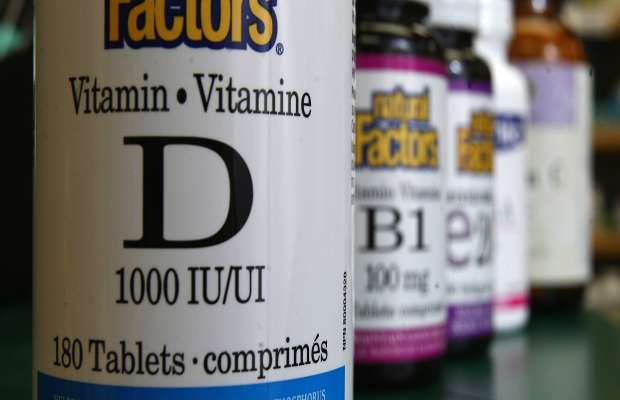The majority of pregnant women in Vancouver might not be getting enough vitamin D, even with prenatal supplements, according to a study published on Thursday.

The study, published in the Canadian Journal of Public Health, interviewed and measured vitamin D levels in 336 women in Vancouver who were 20 to 35 weeks pregnant.
It found that 65 per cent of the women in the study had vitamin D levels lower than recommended by the Canadian Paediatric Society for pregnant or breastfeeding women.
At the same time, more than 90 per cent of the women were taking prenatal supplements.
“Most pregnant women aren’t making the conscious decision to take vitamin D and are just taking a multivitamin,” said Timothy Green, a University of B.C. researcher who led the study. “I’d argue that vitamin D should be increased in these supplements to 1,000IU (international units), so we can make sure the women get enough.”
Green said there is on average 400IU of vitamin D in prenatal supplemental multivitamins.

Get breaking National news
He said insufficient vitamin D levels during pregnancy might increase the risk of low birth weight, the baby’s risk of developing rickets and the woman’s risk of pre-eclampsia, which is a sudden onset of high blood pressure during pregnancy. Pre-eclampsia is the leading cause of maternal deaths in Canada.
But there’s a lack of research evidence to determine what the minimum level of vitamin D should be, he added.
Health Canada recommends a minimum level of vitamin D at 50 nanomoles per litre of blood in women, which is slightly less than the 70 nmol per litre recommended for pregnant women by the pediatric society.
The study found 24 per cent of the pregnant women surveyed didn’t meet that requirement.
The women sampled might not be representative of everyone in Vancouver – close to three-quarters had a university degree, Green said.
“You might find even lower levels of vitamin D overall among all pregnant women,” he said.
The researchers also found that a mother’s darker natural skin colour and pregnancies during seasons with less sunshine tended to lower vitamin D levels even more.
Joanne Waxman, 42, is nine-months pregnant. She takes PregVit, a prescription prenatal/postpartum daily supplement, which supplies 200IU of vitamin D per day.
“I am obviously very concerned about making sure this baby develops as healthy as possible,” she said. “In terms of supplements, there are a couple of key supplements that I’ve been told are very important, so where does vitamin D rank in this?”
Waxman, a resident of east Vancouver, said her doctor highlighted the importance of folic acid, calcium and iron, but not vitamin D.
“Maybe we just don’t know yet because there isn’t enough research,” she said. “If my doctor said to me this is going to help you and your baby, then I would take it.”
Shannon Norberg, president of the Midwives Association of B.C., said a daily intake of 1,000IU of vitamin D is recommended for pregnant women.
“Vitamin D is becoming quite important because there’s a lot of new research coming out that shows we’ve underestimated its benefits in the past,” she said. “We recommend women to check their prenatal supplements to see what dosage level they have.”







Comments